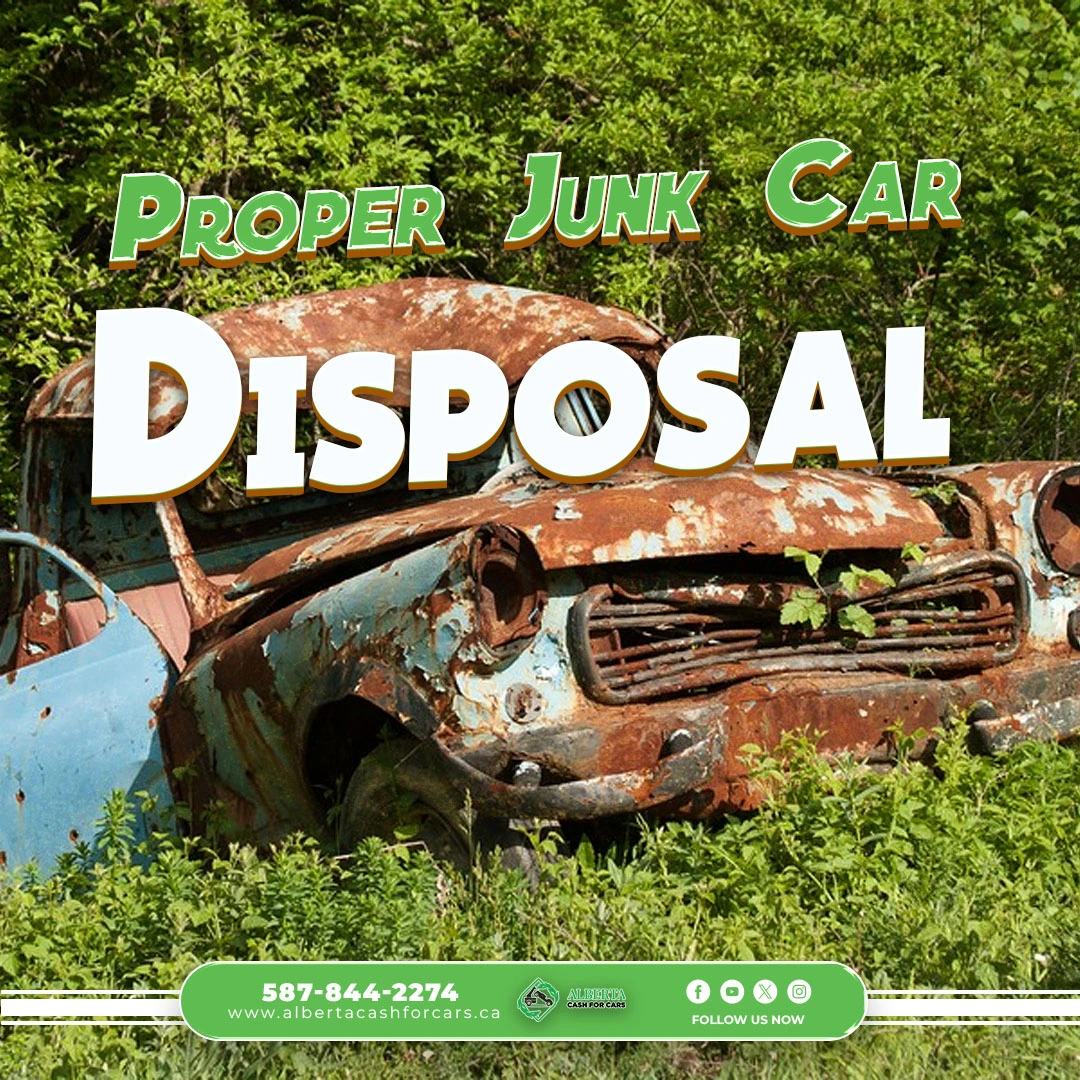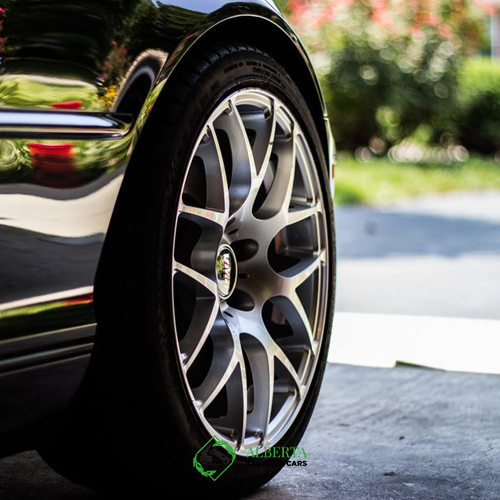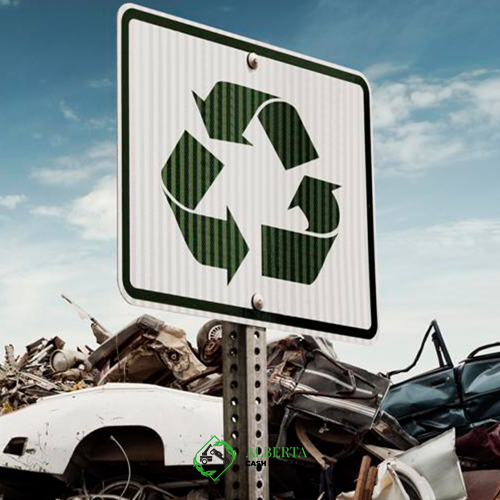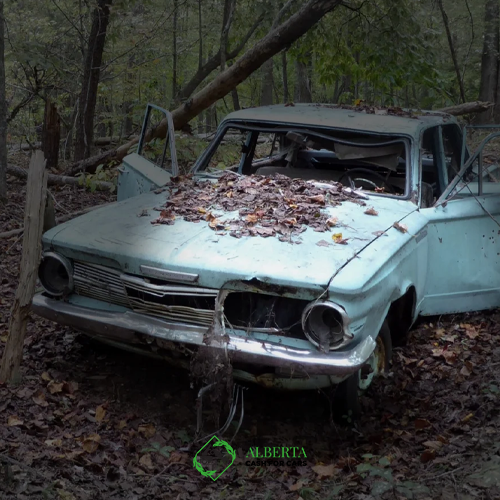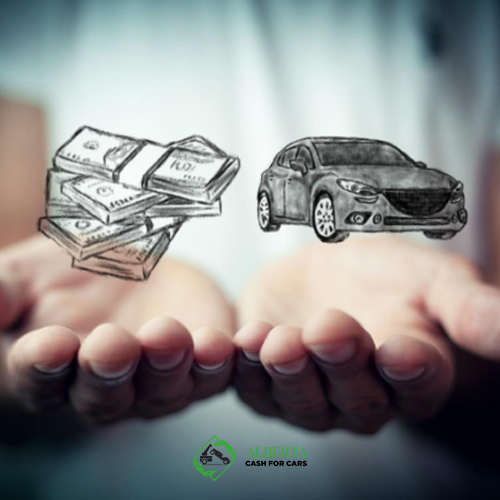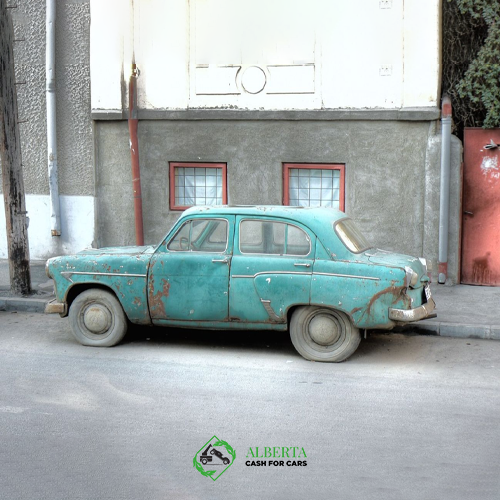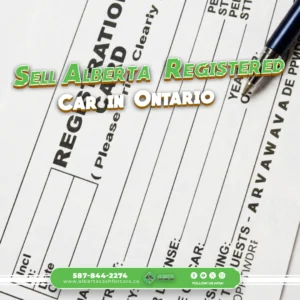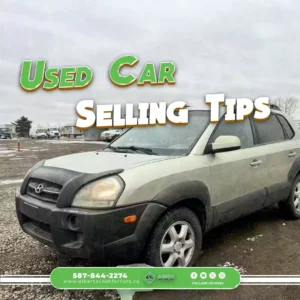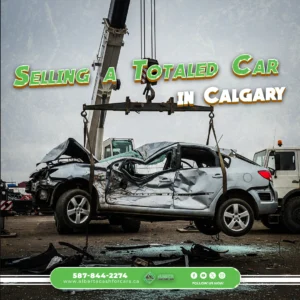Deciding it’s time to retire an old, damaged, or inefficient vehicle can be difficult. But disposing of a junk car properly is important for safety, the environment, and even your wallet. This guide for Junk car removal Calgary covers all aspects of responsibly junking a car, from knowing when it’s time to recycle to getting the most value from your aging auto.
No Hassle, Just Cash — Book Your Free Pickup or Quote Today!
When to Retire Your Vehicle
Constant breakdowns, high repair bills, or declining performance can signal a car’s time is up and you need to plan for junk car disposal to get rid of it or sell it to earn some cash. Specific signs include:
- Failing a state safety or emissions inspection due to expensive repairs needed
- Accumulating major issues like transmission problems, major oil leaks, electrical faults
- Damage from an accident leaving the car unsafe or uneconomical to fix
- Rust, body damage, or corrosion that continues spreading
- Odometer reached over 150,000 miles with maintenance costs rising
- Getting much lower than average gas mileage with no ability to improve it
- Facing a major service needing replacement soon like the timing belt
If repair costs exceed the car’s value, investing in a new vehicle becomes smarter financially. Junk car disposal for older cars also gets highly polluting models off the road.
Donating Your Car
Donating your used car to charity is an environmentally friendly disposal option. Many nonprofits accept donated vehicles, sell them at auction, and use the proceeds to fund their community programs. To donate, search for reputable charities that handle car donations in your area. Contact them to begin the intake process. Make sure to transfer the title signed over to the organization. Most charities arrange free towing or pickup once you finalize the paperwork. You’ll receive a donation receipt to use when filing taxes which provides a charitable deduction based on the auction sale price.
Donating older, low-value cars is preferable rather than trying to resell them yourself and dealing with title transfers. The convenience and tax benefits make donating an easy end-of-life option if you’ve owned the car for a while. Just be sure to work with established legitimate charities.
Reselling Your Used Car
Reselling privately yields the highest returns for vehicle still in good operating condition. Marketplaces connect you with local buyers and make advertising easy. Provide detailed description including maintenance history, mileage, engine specs and any defects for car disposal for cash. Thoroughly clean the vehicle inside and out beforehand. List at a competitive market price based on research and be willing to negotiate reasonably.
Meet test drives in safe public places. Accept payment via secure electronic transfer. Sign over the title only once fully paid. Many states require a bill of sale as well. Reselling older cars with mechanical issues can become a headache. In those cases, donating, trading in, or selling very cheap may be better option than pouring money into repairs.
Be ready for Junk Car Disposal
Before recycling a junk car or handling the junk car disposal process, proper preparation is key:
- Remove all personal items from the car including paperwork. This protects privacy.
- Cancel registration and acquire a signed title document to prove ownership.
- Disable the car alarm. Unlink paired phones or garage door openers.
- Check state DMV requirements for properly de-registering a junk vehicle.
- Contact your insurance company to remove the car from your policy.
- Empty all gas, oil, and other vehicle fluids according to hazardous waste disposal regulations.
- Remove license plates, non-integrated electronics, custom parts, or specialty equipment to retain.
Following these steps ensures you retain personal items while properly transferring ownership and getting the car ready for environmentally responsible recycling.
Does my car need have significant value left to get local junk car removal?
Near any vehicle holds minimum commodity scrapping value making it eligible for junk sales exceeding $100 typically. Scrap reserves exist even in oldest vehicles. Thus condition matters just alter pricing ratios. Simply inability to safely drive qualifies cars for junk removal eligibility opening storage relief options.
How is the disposal of car process?
When a vehicle reaches the end of its life and is no longer portable, you have a few options for disposing of an old car. You can disposal of car with the help of a scrap dealer who salvages reusable parts and makes sure they don’t end up in a landfill.
You may be able to drop off your old car at the dealership where you first bought it. If you own a garage or car dealership, you should make sure that your waste is collected for proper disposal by a licensed waste hauling company experienced in the disposal of automotive vehicles.
What happens after the disposal of car?
When old cars are transported to a suitable recycling center, they are separated and each part of the vehicle is disposed of in a different way, for example, car batteries must be used with special care, they are divided into different parts such as lead, nickel and acid. The acid is carefully neutralized and other products are prepared for reuse. In addition, metal scraps such as the car body, next to the rims and handles, are melted at high temperature and then they can be re-entered into the production process.
Are there penalties for cancelling or missing appointments?
Reputable providers allow cancellation without fees given unpredictable owner situations as long as communicated before departure to sites. However excessive serial rescheduling, no shows or overdue appointments eventually invite service charges around $50 reflecting wasted labor costs sending dedicated resources on false pretenses. Communicate honestly resource limits.
Overall local junk car removal fills a unique niche ethically discarding retired clunkers no longer road worthy while providing owners supplementary values their car investments historically lacked during end of use phases. This closing transaction convenience combines environmental awareness dismantling community eye sores responsibly.
What are the costs related to recycling and discarding cars?
If you are also getting rid of your car, you can usually arrange a free collection by a scrap dealer. However, businesses that generate large amounts of automotive waste must cover the cost of their safe disposal.
How to estimate the value of your unwanted car?
The very first step in valuing your car is to find out how much it is worth. You can use online estimation websites or ask dealers for quotes on your car. Once you’ve found out the car’s value, you can consider whether it’s worth spending money on the car so that you can use it again, or whether it’s better to use one of the ways to get rid of used car and sell it.
You might be wondering if there’s a way to increase the value of your junk car, and the answer is yes. All you need to do is get a mechanic to replace some of the essential parts of your car, and then you can sell it for a better price.
To find out if it’s worth spending money on the car to reuse it, you can compare the value you’ve found through online valuations and the dealer with the money you should spend on repairing the car or increasing its value to sell it to junkyards.
Choosing Where to Dispose of Your Junk Car
Several options exist for safe and sustainable junk car disposal.
Junkyards and Salvage Yards
The most common destination is a licensed junkyard or auto salvage yard. They professionally dismantle and recycle retired autos, disposing of hazardous components properly. Many purchase junk cars, paying based on weight, parts value, and scrap prices.
Related Post:
Scrap Car vs Salvage Car | What Is the Difference?
Charitable Donations
Donating to charity is a tax-deductible option. Organizations may accept car donations and handle junk car disposal on your behalf. Make sure to transfer title documentation first.
Dealerships
Ask your dealer if they accept trade-ins in any condition. Some will junk the car for you after purchase. Luxury brands may also accept a previous model as a goodwill gesture.
Scrap and Metal Recyclers
Local scrap metal companies can dismantle the car and recycle the materials. Environmentally conscious ones follow green recycling practices.
Municipal Car Recycling
Some cities and towns offer programs allowing residents for junk car disposal of old cars at designated sites or via pickup service. Fees may apply but it benefits the community.
The Importance of Choosing the Right Junk Car Removal Service
When it’s time to recycle old cars, selecting the right junk car removal service is crucial for a smooth and profitable experience. Not all companies follow ethical or environmentally responsible practices, so doing your research ensures your car is disposed of properly while maximizing its value.
A reputable service like Alberta Cash For Cars offers free towing, competitive pricing, and eco-friendly recycling methods. They handle all paperwork, including title transfers, making the process hassle-free. By choosing a licensed and insured company, you avoid potential scams and ensure hazardous materials are disposed of safely.
Additionally, trusted recyclers maximize the value of your junk car by salvaging usable parts and properly processing metals, fluids, and other materials. This not only benefits you financially but also reduces environmental waste. Many services even provide same-day removal, freeing up space in your garage or driveway immediately.
Before finalizing a deal, compare quotes, read reviews, and verify the company’s recycling certifications. A transparent service will explain how they recycle old cars and provide documentation for tax deductions if donating.
The Junk Car Recycling Process
At professional recycling facilities, end-of-life vehicles undergo systematic dismantling and processing:
- All fluids including fuel, motor oil, brake fluid, coolant, and refrigerant gases are captured and disposed of per environmental regulations.
- Hazardous materials like lead-acid batteries, mercury switches, and catalytic converters are removed and managed separately.
- Usable parts like wheels, mirrors, headlights, and seat belts are detached for potential reuse.
- Metals making up the bulk of a car’s structure are separated and processed based on their grade and purity.
- Steel first goes through mechanical shredding, then sorting using magnets before recycling at steel mills.
- Non-ferrous metals like aluminum and copper are baled and sold to specialty recyclers.
- Plastics, vinyl, glass, and rubber get sorted and recycled accordingly. Electronics are extracted and recycled.
- Leftover material gets processed as scrap metal or as recycled construction aggregates.
Documentation and Legal Considerations
When transferring ownership of a junk car, there are legal and documentation steps to complete:
- The title must be signed over to the recipient, whether a junkyard, charity, or dealer.
- In some states, filling out a Notice of Transfer and Release of Liability form informs the DMV the car is junked.
- Remove license plates and cancel vehicle registration with your state DMV to avoid liability.
- Obtain a receipt from the business junking the car as a tax deduction record for its value.
- Research any state or local vehicle disposal regulations that may apply. Companies handling junk cars must hold the required licenses and permits.
Following proper documentation protocols absolves you of legal responsibility for the old car.
Getting the Best Value for Your Junk Car
To maximize return when junking a car:
- Evaluate offers from multiple junkyards and metal recycling co. companies. Price quotes are typically free.
- Negotiate! Ask for a higher quote based on your car’s attributes like valuable parts or metals.
- For charities, understand they recoup costs through auctioning your car, not its full market value.
- If still operable, drive the car to the junkyard to avoid towing fees. Otherwise, ask if towing is free.
- Consider allowing extra time for companies to remove sought-after parts first before scrapping the hull.
- Holding onto valuable components yourself (stereo, wheel rims) and selling separately may earn more.
- Donate to a charity that provides clear documentation of your car’s value for a maximum tax deduction.
In the process of disposal of car, what kind of waste are the cars?
Cars are a type of vehicle waste that consists of different types of waste. When old cars are thrown away, they are usually divided into separate parts that are placed in different categories of waste:
- Scrap metal: The car body or frame is usually made of carbon steel, which is a type of metal that can be easily recycled.
- Waste batteries: Dead or old car batteries should be removed and disposed of as waste batteries.
- Waste Oils: Automotive fuel grades as a form of waste oil, be it gasoline or diesel engine, must be handled carefully due to their hazardous nature.
What happens when a car gets old?
With continuous use, car parts wear out and problems such as mechanical or electrical problems may arise for the car and it may cause to dispose of old car. You can easily go through this process by understanding why these problems arise. The following are the most common problems associated with the age of the vehicle:
Engine Wear
For a car engine to have efficient performance requires precise interactions between several parts of the car in such a way that optimal performance is guaranteed. However, any of these parts may wear out over time through heat and friction.
As some engine components age, the risk of carbon deposits will increase. Carbon deposits on spark plugs or pistons can cause a noticeable knock in the engine. The car’s engine may compensate for this problem by shortening its timing and causing a power reduction.
Electrical failures
Some electrical parts of the car wear out faster than usual, for example, a normal car battery can last up to five years. Other parts may be subjected to various types of wear and tear and eventually fail.
If your car has electric windows, door locks, and other electric options, one or more of their parts may fail over time. Possible causes include a worn-out motor or key in the door or window, fuses that have expired and need replacing, and corroded wiring harnesses.
Sagging Suspension
As the vehicle ages, the suspension system may begin to wear out and it may cause to dispose of an old car. Springs, coils, and other suspension components can withstand years of normal wear and tear, but they still lose their ability to withstand changes in weight distribution or even ride height with the car at rest.
You may notice a change in car body height while driving before you see it. For example, when you make a fast turn, accelerate, or stop, you feel that the car shakes, or when you go over bumps, you notice that the suspension system goes down and you and other people go up and down.
Environmental Benefits
The structured local junk car removal process holds immense environmental upsides beyond simply convenient owner disposal. Recycling end-of-life autos recovers tons of raw materials like steel, rubber, glass otherwise wasted deteriorating illegally dumped nationwide every year. Responsible materials recovery infrastructure channels these resources into renewed manufacturing inputs rather than landfill escalation. There are over 300 million scrapped cars in the US alone as figures soar globally. Market subsidies making participation financially viable and safe for companies and individuals ensures sustainable resource loops minimizing waste at scale.
Junk cars specifically pose additional environmental threats from petroleum fluid leakage seeping into soils as deteriorating tanks grow unsealed over decades of outdoor storage. Licensed removers thoroughly extract these hazardous vehicle fluids for appropriate reclamation processing before non-recyclable chassis get compacted and shredded into material separations feeding the recycling supply chain. When owners avoid unlawful dumping temptations, junk handlers enable optimal care at pivotal end-of-life stages beyond mere scrap profit pursuits.
The future of junk car removal
The traditional image of a junkyard overflowing with rusting hulks may soon be a thing of the past. The future of junk car removal is poised to be greener, smarter, and more streamlined, driven by innovation and environmental concerns.
Tech-Powered Efficiency:
Expect online platforms to dominate the industry, connecting car owners for get rid of old junk cars with reputable dismantlers and recyclers. Mobile apps could streamline the process of get rid of old junk cars, allowing instant quotes and scheduling pick-up times. Advanced dismantling techniques may utilize robots for faster, safer part extraction, maximizing reuse potential.
Focus on Circular Economy:
The emphasis will shift from mere scrapping to maximizing resource recovery. Advancements in material separation will ensure efficient extraction of valuable metals, breathing new life into these components and reducing the need to get rid of old junk cars altogether. Reusable parts will be readily available online, extending the lifespan of components and minimizing the environmental impact.
The Future is Collaborative:
Collaboration between car manufacturers, recyclers, and governments will be crucial. Design for disassembly will become an industry standard, allowing for easier part extraction and material separation, making it easier and more efficient to get rid of old junk cars in the future. Incentive programs could encourage responsible car disposal and support the development of innovative recycling technologies.
The future of junk car removal promises a more sustainable, efficient, and tech-driven approach to saying goodbye to your old car. By embracing these advancements to get rid of old junk cars, we can ensure that our end-of-life vehicles contribute to a greener future, not a cluttered past.
Conclusion
Deciding when it’s time to retire a damaged vehicle can be a difficult call to make. But following best practices for proper junk car disposal allows you to maximize sustainability and value recovery from your old automobile. Look for clear signs like high mileage, escalating repair bills, and safety issues to determine when the prudent option is to junk your car. Once you decide it’s time, properly prepare the car by removing any personal items, electronics, and custom parts you want to retain and emptying all hazardous fluids according to regulations. Research and select reputable, licensed junk car services or charitable programs to handle recycling your vehicle – evaluate multiple buyers to get the best quote.
Understand that the professional dismantling process allows maximal reuse of working components, safe disposal of anything hazardous, and recycling of metals and other materials. Complete all necessary DMV paperwork and transfer of title to absolve your legal liability. Obtain receipts for any tax deductions you may be eligible for. With savvy negotiations and parting out valuable items yourself, it’s possible to get a fair return on your junker. Following these best practices for properly junking outdated autos means curbing pollution while giving your car a sustainable second life.

